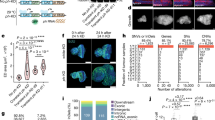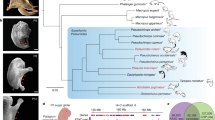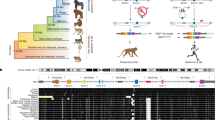Abstract
In Drosophila, a large group of structural genes exhibit coordinate regulation, not because they function in a common developmental pathway but because they happen to reside on the X chromosome. These genes are subjected to the regulatory mechanism of dosage compensation which insures that their phenotypic products are identical in the sex with one and in the sex with two X chromosomes. This equalization of gene products is achieved by regulating the level of transcription of both X chromosomes in females and of the single X chromosome in males1. We report here that, reasoning that sex-specific lethal mutations may represent lesions in the processes controlling the transcription of X-linked loci, we sought and recovered several male-specific lethal mutations and noted that they affect the levels of X-linked enzyme activities in crude extracts of homozygous male larvae. Autoradiographic monitoring of RNA synthesis in larval polytene chromosomes of males homozygous for one of these mutations, mlets, reveals a significant reduction in the rate of X chromosome transcription.
This is a preview of subscription content, access via your institution
Access options
Subscribe to this journal
Receive 51 print issues and online access
$199.00 per year
only $3.90 per issue
Buy this article
- Purchase on Springer Link
- Instant access to full article PDF
Prices may be subject to local taxes which are calculated during checkout
Similar content being viewed by others
References
Lucchesi, J. C. Science 202, 711–716 (1978).
Belote, J. M. & Lucchesi, J. C. Genetics (submitted).
Fukunaga, A., Tanaka, A. & Oishi, K. Genetics 81, 135–141 (1975).
Tanaka, A., Fukunaga, A. & Oishi, K. Genetics 84, 257–266 (1976).
Tobler, J. & Grell, E. H. Biochem. Genet. 16, 333–342 (1978).
Borack, L. I. Experientia 30, 31 (1974).
Aronson, J. F., Rudkin, G. T. & Schultz, J. J. Histochem. Cytochem. 2, 458–459 (1954).
Maroni, G., Kaplan, R. & Plaut, W. Chromosoma 47, 203–212 (1974).
Dobzhansky, T. Chromosoma 8, 691–698 (1957).
Mukherjee, A. S. & Beermann, W. Nature 207, 785–786 (1965).
Steele, M. W., Young, W. J. & Childs, B. Biochem. Genet. 3, 359–370 (1969).
Lucchesi, J. C. & Rawls, J. M. Jr Biochem. Genet. 9, 41–51 (1973).
Whitney, J. B. & Lucchesi, J. C. Insect Biochem. 2, 367–370 (1972).
Jacobson, K. B., Murphy, J. B. & Hartman, F. C. J. biol. Chem. 245, 1075–1083 (1970).
Fox, D. J. Biochem. Genet. 5, 69–80 (1971).
Courtwright, J. B. Genetics 57, 25–39 (1967).
Lowry, O. H. et al. J. biol. Chem. 193, 265–275 (1951).
Maroni, G. & Plaut, W. Chromosoma 40, 361–377 (1973).
Author information
Authors and Affiliations
Rights and permissions
About this article
Cite this article
Belote, J., Lucchesi, J. Control of X chromosome transcription by the maleless gene in Drosophila. Nature 285, 573–575 (1980). https://doi.org/10.1038/285573a0
Received:
Accepted:
Issue Date:
DOI: https://doi.org/10.1038/285573a0
This article is cited by
-
Transcriptional modulation of entire chromosomes: dosage compensation
Journal of Genetics (2018)
-
Dosage compensation and its roles in evolution of sex chromosomes and phenotypic dimorphism: lessons from Drosophila, C.elegans and mammals
The Nucleus (2017)
-
Variation in transcriptome size: are we getting the message?
Chromosoma (2015)
-
Facts and artifacts in studies of gene expression in aneuploids and sex chromosomes
Chromosoma (2014)
-
Implications of the gene balance hypothesis for dosage compensation
Frontiers in Biology (2011)
Comments
By submitting a comment you agree to abide by our Terms and Community Guidelines. If you find something abusive or that does not comply with our terms or guidelines please flag it as inappropriate.



